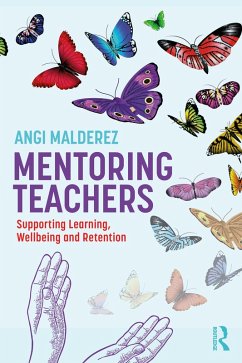Dividing the mentor role into five key aspects (Support, Acculturator, Model, Sponsor and Educator), this important resource provides step-by-step descriptions of managing mentorials in ways which:
- support the mentor in scaffolding a mentee's thinking so that they can make their own informed judgements and decisions about teaching
- develop the mentee's noticing skills for responsive, adaptive teaching
- guide the mentee towards recognising the relevance of others' ideas or 'theories' to their own practice and experience
- leave the mentee with practical ideas and plans for teaching and developing their teaching skills and
- scaffold the mentee's learning of Systematic Informed Reflective Practice (SIRP) to support their ongoing learning and development by themselves
Mentoring can, if effective, contribute to mentees' learning, wellbeing and retention in the profession. Mentoring Teachers describes effective mentoring practice and is a crucial read for any mentor, aspiring mentor or mentor programme co-ordinator.
Dieser Download kann aus rechtlichen Gründen nur mit Rechnungsadresse in A, B, BG, CY, CZ, D, DK, EW, E, FIN, F, GR, HR, H, IRL, I, LT, L, LR, M, NL, PL, P, R, S, SLO, SK ausgeliefert werden.
- Anna Szegedy-Maszák, ELTE Eötvös Loránd University (excerpt taken from Issue 39 of ELT Research)
'This book, written by an international expert on teacher mentoring, encourages readers to think beyond the conventional support typically provided by traditional supervisors, trainers or assessors in the teaching profession.'
- Farhan Saeed Vakani, snippet taken with permission from (Saeed Vakani, F. (2024), "Book review: MENTORING TEACHERS supporting learning, wellbeing and retention", International Journal of Mentoring and Coaching in Education, Vol. 13 No. 3, pp. 411-413. https://doi.org/10.1108/IJMCE-09-2024-116)


